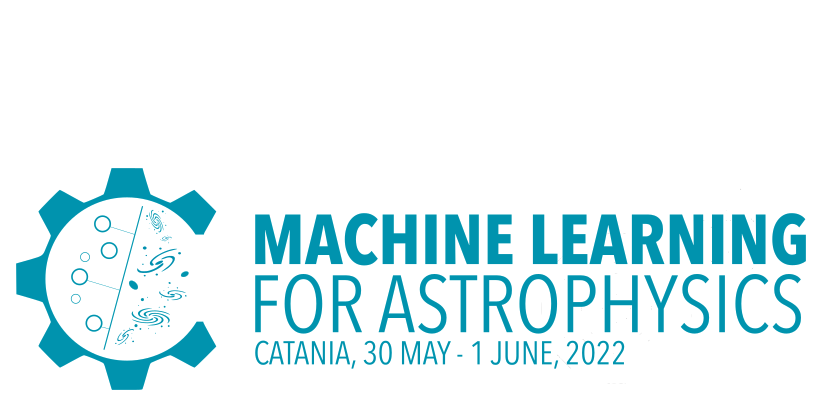Speaker
Description
Neutrino telescopes, such as IceCube, KM3NeT or GVD, consist of thousands of photo sensors distributed over cubic kilometer volumes. The Cherenkov light from particle interactions within create signals of varying shapes and sparsity. For the reconstruction of such physics events, one aims to infer quantities like the interaction vertex, the deposited energy, the angles, and the topology of the interaction. This reconstruction step is of central relevance to many physics analyses and searches, and improvements in both accuracy and speed have a direct, positive impact on the science. This talk will present two novel event reconstruction algorithms based on machine learning (ML). One of our algorithms is based on graph neural networks, that are capable of accurate reconstruction at very high speeds, even applicable to online event processing. Our second approach is a hybrid likelihood-ML method using a likelihood decomposition and a "ratio estimator trick" to arrive at a fast and precise approximation of the true reconstruction likelihood. This allows to employ frequentist and Bayesian inference techniques alike. We will round off the talk with performance figures and comparisons.
| Main Topic | Classification and regression |
|---|---|
| Secondary Topic | Deep learning |
| Participation mode | In person |

